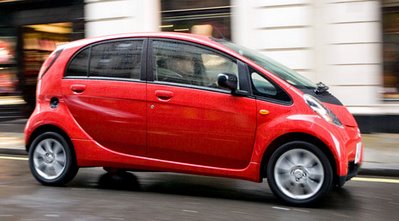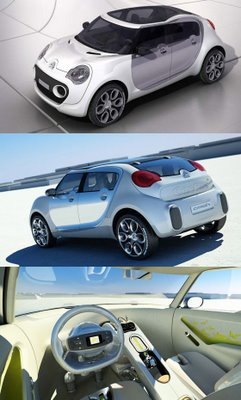"....We have the option of letting the remaining resources of the planet be fought over viciously through militarized power or we can move rapidly to the ability to rebuild our ecosystems, share the limited resources the planet can provide us, and create good lives while doing it. But to do that, we'll have to get out of many reductionisms.
The first reductionism being the reductionism of energy. We've suddenly moved to thinking of energy as something we can consume, not as something we generate. And I think that generative concept of energy -- we call it shakti in India -- is something we have to reclaim, because the solution to pollution and wasted people is bringing people back -- deep into the equation of how we produce things, how we work the land, how we shape community, and how we exercise our democratic rights and rebuild our freedoms."
Vandana Shiva
Sustainable design theory manifested in products, infrastructure, and graphic representation. A utopian glimpse of a future New Zealand where environmental considerations are of tantamount importance, and society is designed to accommodate the native ecosystem.
Monday, October 08, 2007
Mitsi i EV
Mitsubishi's new i Car is an excellent piece of design thought- only slightly longer than a Smart Fourtwo, but with seating for 4, and looks like something straight out of Ghost in the Shell..

An all-electric version has just been unveiled, for possible delivery next year. This seems like the most practical all-electric vehicle yet- a range of 100 miles, charge time of 7 hours, but 80% charge in half that time. A specialised quick-charge unit will provide 80% charge in half an hour, so de-centralised charging stations are a possibility. Top speed is 80 mph, the electric version actually provides twice the torque of the petrol version, and slightly more power. Overall energy costs are expected to be between a third and a ninth of the petrol engine. Price estimated to be circa UK£15,000, or at today's exchange rate, ~NZ$40,200.
Meridian Energy has discussed electric car trials, the i EV would be a superb candidate. If Mitsubishi released a lease deal here, I'd seriously consider taking it up in our single-car-household domestic arrangments (we'd need an off-street garage though)!
Edit: I've never been a strong proponent of modern hybrid cars, they appear to be a clever marketing halo for their respective brands rather than a hugely positive step forwards. Substituting visible, operational energy efficiency (in a narrow window of use, furthermore) for truly reductionist thinking. Here is the most recent list of overall, cradle-to-grave energy use by cars on the UK market.
'Conventionally engined superminis dominate the top ranks. The scientists gave half their score based on each cars' emissions of CO2, NOx and other pollutants; the other half of the score was calculated from vehicles' construction, energy costs, recyclability and size. The higher the score, the cleaner the car:
• 1st Smart Roadster - 66.2 points
• 2nd Smart Fortwo Cabriolet - 59.8
• 3rd Citroen C1 1.0 - 40.1
• 4th Peugeot 107 1.0 - 38.6
• 5th Citroen C1 1.4 HDI - 31.3
• 6th Fiat Panda 1.2 Dualogic - 28.4
• 7th Ford Ka 1.3 - 27.5
• 8th Toyota Yaris 1.0 - 27.2
• 9th Fiat Panda 100hp - 23.6
• 10th Pegueot 206 1.4 - 23.5
• 11th Mini Cooper D - 23.3
• 12th Toyota Prius 1.5 - 23.2'

By far the most interesting, avant-garde approach to small cars recently is the 83 MPG Citroen C-Cactus.
Photos courtesy of CAR
Subscribe to:
Comments (Atom)